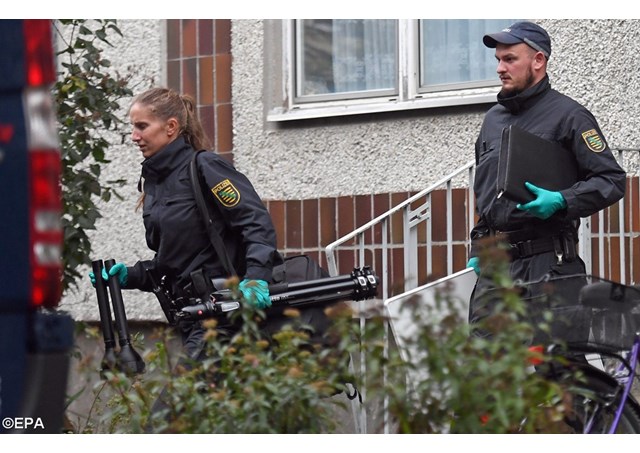
Germany detains key Islamic State suspect

(Vatican Radio) Germany's police say a Syrian man who was detained after a two-day manhunt appears to have links to Islamic State group and was preparing a major attack. The arrest came amid concerns in other European Union member states such as Hungary over a perceived lack of coordination between counter terrorism authorities.
Listen to the report by Stefan Bos:
German officials say key suspect Jaber al-Bakr, who arrived in Germany as a refugee, was detained in a flat in the eastern city of Leipzig early on Monday. The man had reportedly sought help from another Syrian, who alerted police after letting al-Bakr sleep at his flat.
The hunt began after police found very volatile explosives at al-Bakr's flat in Chemnitz, south of Leipzig. In the initial raid in Chemnitz early on Saturday, 22-year-old al-Bakr evaded capture as officers fired a warning shot in a botched attempt to stop him.
Yet, police managed to detain three other suspects in connection with a bomb plot allegedly planned by al-Bakr prompting evacuations, explained Tom Bernhardt, press spokesperson for the Saxony criminal investigation office. "It is necessary to mention that we have evacuated people in the area," he added.
"The cordoned-off area is so wide that we can almost rule out a threat to the local population, which has co-operated with the police."
MASSIVE ATTACK
With the key suspect now also in custody, police hope to learn more about what could have been a massive attack on German soil. Police found a detonator, explosives and a kilo of chemicals in the Chemnitz flat, and said an explosives belt may have been nearly ready. Similar explosive were used in the deadly jihadist attacks in Paris last year and Brussels in March.
However Hungary has suggested that more coordination is needed between different European authorities to avoid attacks in the EU. The Hungarian Anti-Terrorism Center (TEK) said it had eight telephone numbers that were used by terrorists involved in bombings in Brussels and Paris. Six of these numbers were activated by SIM cards for mobile phones that were purchased in the name of a homeless person.
Hungarian media reported some 200,000 SIM cards were bought but it remained unclear how many had been taken by militants.
But TEK claimed that French and Belgian authorities had not even noted suspicious calls from Hungarian telephone numbers and had not informed their Hungarian counterparts about these suspicion activities.
TEK says 14 of the terrorists who participated in recent attacks in Paris in November last year which killed at least 130 people and in Brussels in March that claimed the lives of 32 people from around the world. Hungarian authorities also claim that 14 terror suspects traveled through Hungary between the spring and autumn of 2015.
| All the contents on this site are copyrighted ©. |


